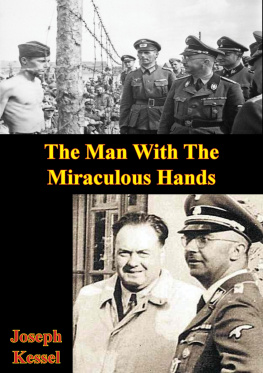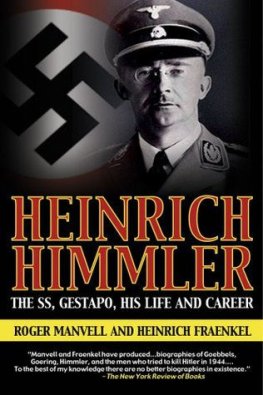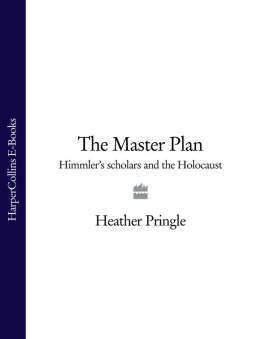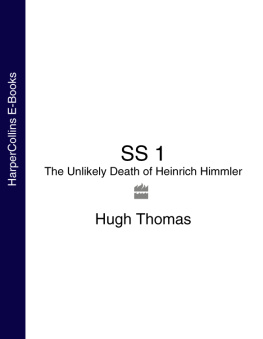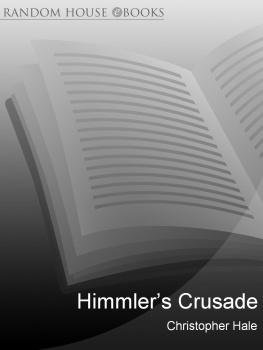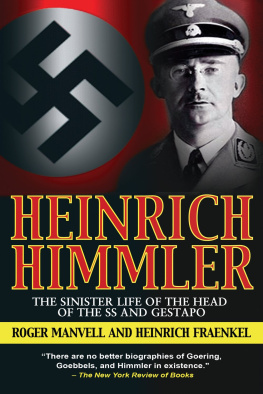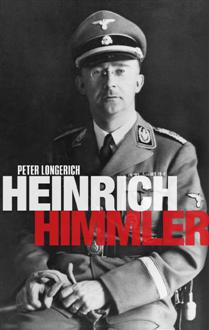

This edition is published by PICKLE PARTNERS PUBLISHINGwww.picklepartnerspublishing.com
To join our mailing list for new titles or for issues with our books picklepublishing@gmail.com
Or on Facebook
Text originally published in 1961 under the same title.
Pickle Partners Publishing 2015, all rights reserved. No part of this publication may be reproduced, stored in a retrieval system or transmitted by any means, electrical, mechanical or otherwise without the written permission of the copyright holder.
Publishers Note
Although in most cases we have retained the Authors original spelling and grammar to authentically reproduce the work of the Author and the original intent of such material, some additional notes and clarifications have been added for the modern readers benefit.
We have also made every effort to include all maps and illustrations of the original edition the limitations of formatting do not allow of including larger maps, we will upload as many of these maps as possible.
THE MAN WITH THE MIRACULOUS HANDS
BY
JOSEPH KESSEL
Introduction by H. R. Trevor-Roper
Translated from the French by
Helen Weaver and Leo Raditsa
TABLE OF CONTENTS
Contents
INTRODUCTION
The late Felix Kersten, whose story my friend Joseph Kessel has written, was a man of unusual gifts and a strange history. By profession he was a doctor, but he did not possess, or require, any ordinary medical degree. Sometimes he has been described as a masseur, but he himself always strongly repudiated that term. He was, he explained, Arzt fr manuelle Therapie, and he had special theories on this subject, which he published in a booklet and applied for many years, with enormous practical success. This success made him prosperous and famous. His patients included the rich and great of all Europe. They also included the most terrible ogre of modern times, the Grand Inquisitor of Hitlers Europe, Heinrich Himmler.
There was a time when I would have thought it impossible for me to meet and be friendly with any man who had ever been intimate with Himmler. How could one ever, even indirectly, through a common friend, be in touch with that dreadful monster? But human experience is far more complex than we suppose and in the presence of Dr. Kersten I found that even impossibilities could resolve themselves. In his person I achieved this strange destiny; and I found not that Himmler was any less repellentevery new revelation of him only makes him more horrible and macabrebut that there were people who served him in order to serve humanity. But before saying more about Kerstens work, I think I should explain how I came to know of it. In this way I may be able to anticipate controversy.
I first heard the name of Kersten in the last months of the war of 1939-1945. At that time I was an officer in the British Intelligence Service. I was concerned particularly with certain of Himmlers organizationsS.S., Gestapo, etc. In the course of my work I had often heard of Kersten, but always somewhat mysteriously. That is, his name had seldom occurred in the documents, but often in the commentaries. He did not belong to any German organization. How could he? He was not even German. By nationality he was a Finn. But captured members of Himmlers staff often referred to him. He was, it seemed, a mysterious minence grise, a power behind Himmlers bloodstained throne. Then, when the war was over, the mystery was reduced by the capture of one of the most important of Himmlers collaborators: Walter Schellenberg.
Walter Schellenberg was Himmlers political adviser and the head of his intelligence service. After the collapse of Germany he had fled to Sweden where he looked for powerful protection, for he had made friends with the mammon of neutrality. In fact, however, he was disappointed. At the request of the Western Allies, he was extradited from Sweden and brought to England for interrogation. Under interrogation he incidentally revealed a great deal about Kersten. It was from Schellenberg that I first discovered the true nature of Kerstens position with, and power over, their common master, Himmler.
For Himmler, it seemed, suffered terribly from his work in the cause of the Fhrer. Not mentally of course: never did a qualm of doubt cross that dull, infatuated mind as he sent millions after millions to the firing squad and the gas chamber; but physically. He suffered from stomach pains of great, indeed crippling intensity. And then, before the war, his good friend Dr. Diehm, the head of the German Potassium Syndicate, had recommended him to try his own doctor, an unorthodox but marvelously effective practitioner from Finland, Dr. Kersten. From that time onward Himmler had resorted regularly to Dr. Kersten. Kersten was, to him, the magic Buddha who cures everything by massage. Certainly he cured Himmlers stomach pains. At first, Kersten had visited Himmler from Holland, where his greatest patient was the Prince Consort, the husband of Queen Wilhelmina, Prince Hendrik. But in 1940, with the conquest of Holland, he was, in effect, carried off into captivity and became Himmlers court doctor. And by 1943 Himmler was absolutely dependent on him: so dependent that he was obliged to pay Kersten an ever heavier price. He was obliged to allow him prolonged absence in Sweden, where Kersten was building up a new pied--terre against Germanys defeat; and he was obliged to submit, little by little, to ever greater forms of pressure.
Here I cannot help digressing to a general topic. Afterwards, when I was investigating the last days of Hitler, I was surprised to discover that the court of Hitler was also, like the court of Himmler, dependent on doctors and that politics and medicine, there too, were inseparably intertwined. In my book The Last Days of Hitler I have described the great inter-medical battle which convulsed Hitlers court in 1944, leading to the ruin of Dr. Brandt and Dr. Hasselbach and the triumph of Martin Bormanns ally, Dr. Morell. It seems that, in our modern, streamlined dictatorships, with their crowded timetables and the pressure and clatter of their bureaucratic machinery, doctors have replaced the more traditional confidantsthe court fools and confessors and mistressesin whom older, more leisurely, less valetudinarian despots used to trust. Certainly this was so in Nazi Germany. Hitlers dependence on him gave great power and wealth to Dr. Morell. Himmlers dependence on him gave great opportunities to Dr. Kersten. There were opportunities of indulging in the vertiginous political intrigues which surround any dictators power. There were also opportunities of quiet, persistent, effective blackmail.
What were these opportunities, this blackmail? Little by little, as he was interrogated, Schellenberg revealed them. Casually, as one question followed another, we learned how Himmler had consented to spare seven Swedish businessmen, condemned to death for espionage in Warsaw; how he had allowed the Bibelforscher, the German Jehovahs Witnesses, imprisoned as conscientious objectors, to leave their concentration camps; how, at the very end, the arch-persecutor, the annihilator of the Jews had even agreed to meet a representative of the World Jewish Organization and to let the last remnant of his persecuted people go. And all these concessions, we learned, had been wrung out of Himmler by the same means: by Felix Kersten. As Schellenbergs secretary (who was also taken in Sweden and independently interrogated) once heard Himmler say, With every one of his massages, Dr. Kersten deprives me of a life. It is hardly surprising that, in those circumstances, Kersten began to cast his eyes to even wider horizons: that at one time, in 1944, he saw himself as the intermediary who might help to make peace in the world; that at another time he imagined that he might score a great double and, by becoming medical adviser to Stalin, solve the problems of the East.
Next page
